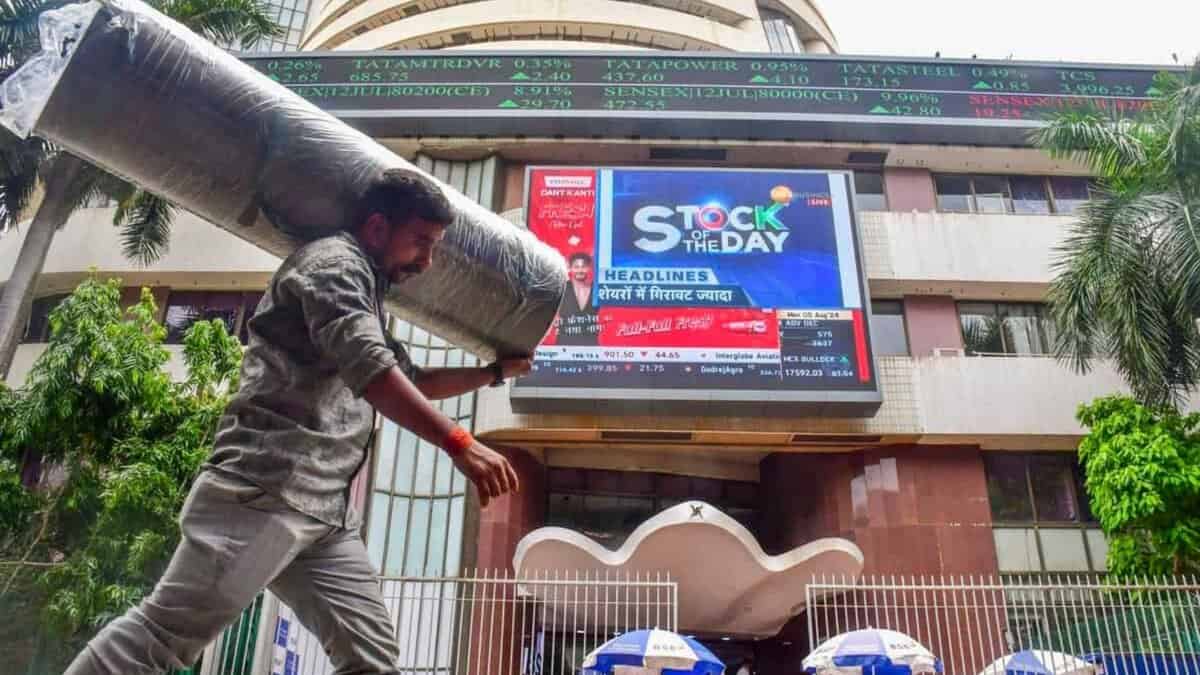
Mumbai: The Indian equity market ended 0.26 per cent lower on a weekly basis, showing decline for the fourth consecutive week, due to subdued Q1 earnings and cautious global sentiment, analysts said on Saturday.
The Nifty50 breached the key level of 24,900, and reached 24,837 when the market closed on Friday. FIIs consistently remained net sellers for last five sessions, reflecting broad-based selling pressure. Mid-cap and small-cap indices saw steeper corrections, underperforming the benchmark.
“Technically, Nifty is trading below its 20- and 50-day EMAs, indicating a bearish short-term trend. The next immediate support to watch is at 24,750, and if this level breaks, further correction may push the index down toward 24,580 near the 100-day EMA — an important technical support zone,” said Mandar Bhojane from Choice Equity Broking Private Limited.
Meanwhile, the United States’ new law on stablecoins, Genius Act, threatens to reshape the flow of capital in India, China and other economies, where banks may be compelled to allow transactions in stablecoins through subsidiaries.
With tariff uncertainty still elevated, the India-UK free trade pact, signed this week, is a boost to ,any stocks from textiles, automobile, pharmaceuticals and jewellery poised to benefit from the reduction, and in some cases elimination, of tariffs.
Vinod Nair, Head of Research, Geojit Investments Limited said, “The finalisation of the US-Japan and India-UK trade agreements marks a key step in easing global trade barriers. A resolution of the US–India mini trade deal by August 1 could further allay investor concerns”.
Private banks like ICICI and HDFC Bank reported steady Q1 earnings. Improved fundamentals and valuations helped PNB Housing Finance and Bajaj Finance.
“The sectoral laggards, including IT and financials, were adversely impacted by subdued guidance and emerging concerns around asset quality. Subpar aggregate earnings performance is likely to challenge the sustainability of current premium valuations across benchmark indices, and we expect a consolidation in the near term,” Nair said.
While the global economy is experiencing volatility, India’s macroeconomic indicators are cautiously optimistic. The Reserve Bank of India’s latest bulletin (RBI) shows a domestic economy that is resilient in the face of global headwinds. Headline inflation has reached its lowest level in years, fuelling expectations of further rate cuts.



